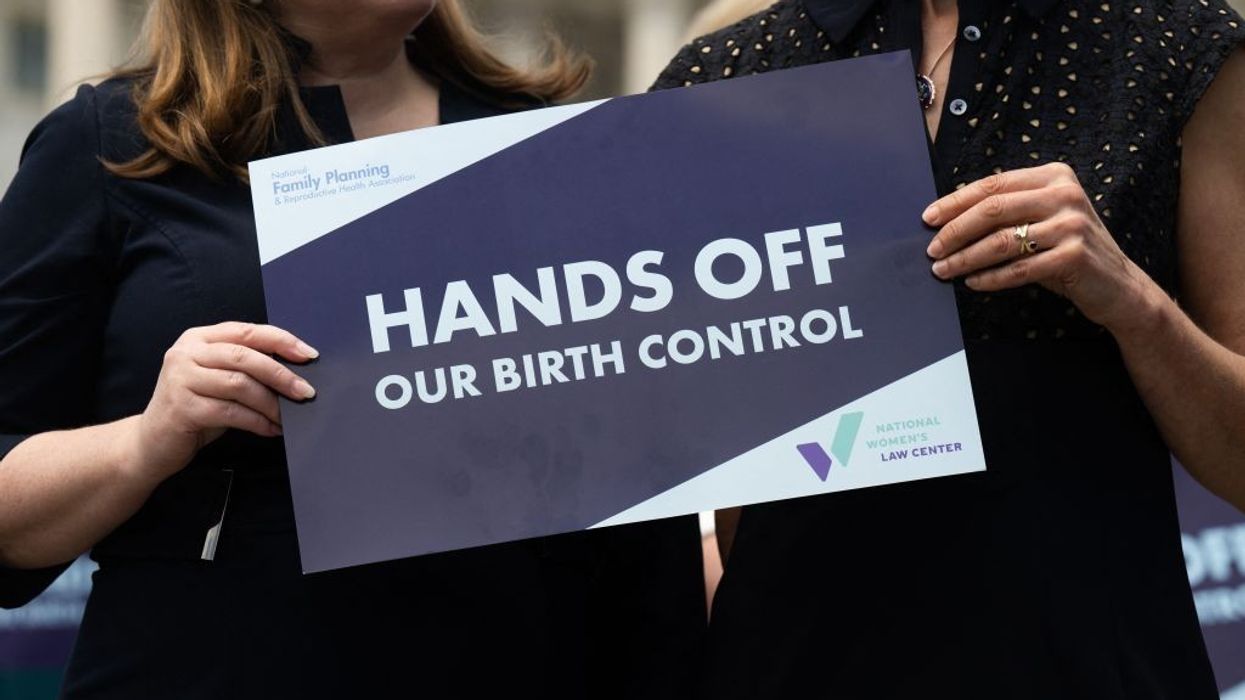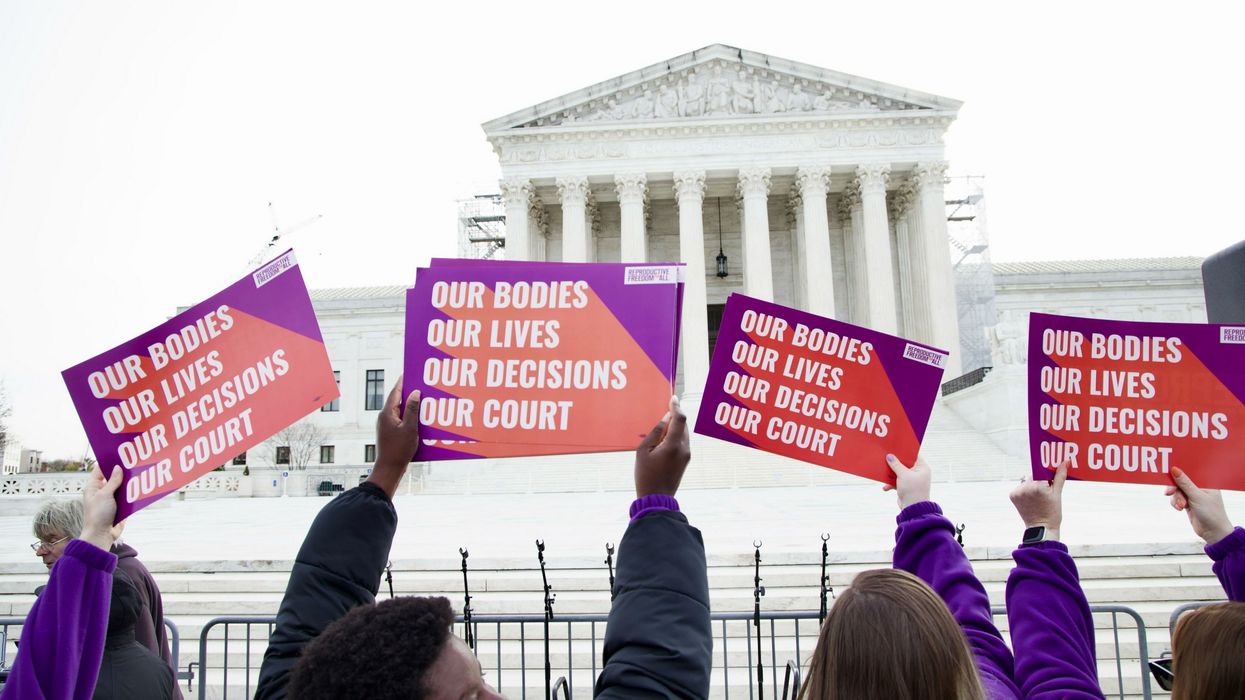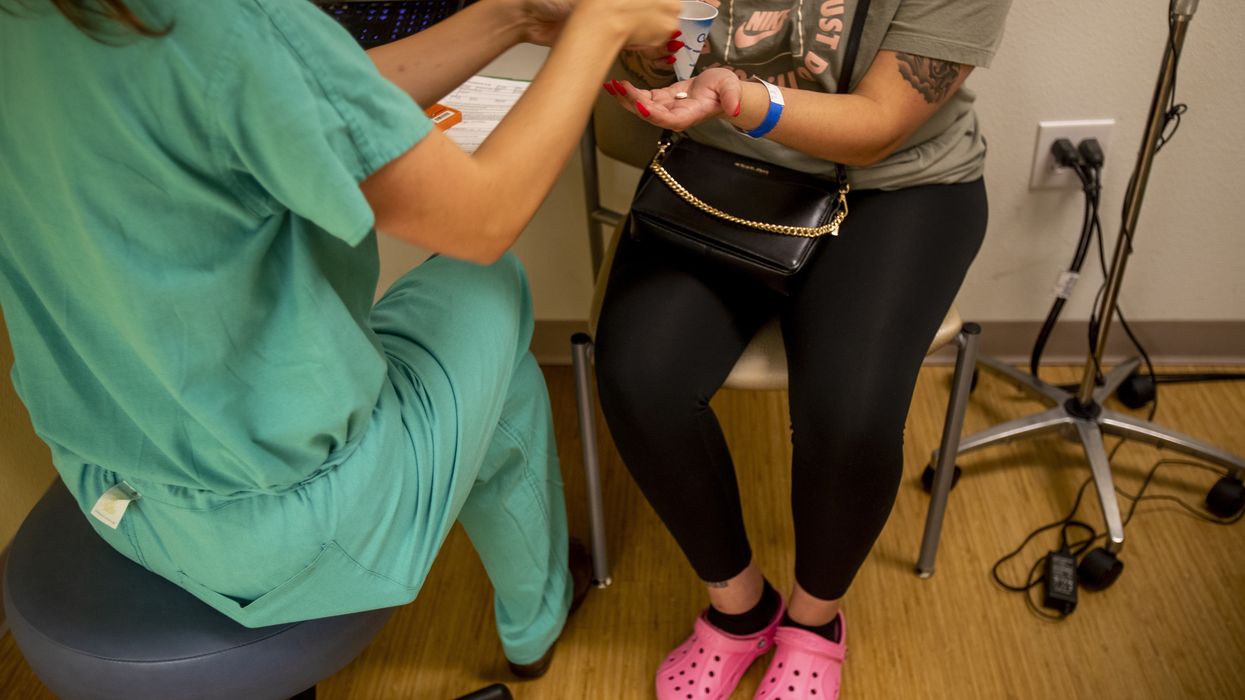Group That Helped Reverse Roe Sets Sights on Birth Control
"We tried to tell all those fuckers that if Trump was elected, we were going to get Handmaid's Tale-d," said one author.
Nearly three years after U.S. Supreme Court Justice Clarence Thomas' 2022 concurring opinion for the reversal of Roe v. Wade elevated fears of Americans losing the right to contraception, a far-right legal group is working to limit access to birth control.
Jezebel reported Wednesday on the current anti-contraception effort by the conservative Christian group, Alliance Defending Freedom (ADF)—which has bragged that its "attorneys and staff were proud to be involved from the very beginning" in the fight to overturn Roe, the 1973 ruling that affirmed the right to abortion nationwide up until the Dobbs v. Jackson Womens Health Organization decision.
Last week, ADF wrote to the U.S. Department of Health and Human Services, urging HHS to "end funding to an organization that has become a radicalized opponent of health and of your agenda: the American College of Obstetricians & Gynecologists (ACOG) and its related entities." The legal group also recommended opening "a civil compliance investigation into whether ACOG improperly used HHS cooperative agreements to promote" diversity, equity, and inclusion (DEI).
"If you have a uterus, it's a great time to get permanent birth control, and stock up on some Plan B and Ella."
The ADF letter states that an HHS agency, the Health Resources and Services Administration (HRSA), "pays ACOG to create online content and podcasts advocating DEI, gender ideology, and abortion advocacy. This program has allocated ACOG over $15 million and needs to be ended promptly to prevent the continued waste of taxpayer funds."
In addition to taking aim at funding for the Alliance for Innovation on Maternal Health (AIM)—which, according to its website, works to "make birth safer, improve maternal health outcomes, and save lives" with its content—ADF wants the Trump administration to "end HRSA's cooperative agreement with ACOG that radicalized the women's preventive services mandate under Obamacare."
Jezebel explained how ADF's attack on the Women's Preventive Services Initiative (WPSI) threatens access to birth control:
The Affordable Care Act says insurance companies have to cover a range of women's preventive health services without cost-sharing like copays or deductibles. The law doesn't name which services, but rather tasks an HHS agency to determine what services have strong evidence showing health benefits. That agency gave a contract to ACOG, which convenes the WPSI panel that includes representatives from its membership and three other major professional organizations. One of the panel's recommendations is that "adolescent and adult women have access to the full range of contraceptives and contraceptive care to prevent unintended pregnancies and improve birth outcomes." So insurance in the U.S. has to cover birth control pills, patches, rings, implants, [intrauterine devices, or IUDs], and tubal ligation without additional costs beyond people's monthly premiums.
Groups like ADF do not like this requirement—especially the mandated coverage of IUDs and emergency contraception like Plan B or Ella. Conservatives falsely claim that these methods block implantation of fertilized eggs, which they believe is tantamount to abortion. (ADF represented one of the plaintiffs in the 2014 Hobby Lobby case who objected to covering these methods.) "This mandate has included a coverage requirement for contraception, including some items that can prevent the implantation of embryos after conception," the ADF letter notes. "The failure to offer robust religious and moral exemptions to that mandate led to years of litigation and repeated trips to the U.S. Supreme Court." Yes, they want employers to be able to object to covering birth control in their insurance plans for either religious or moral reasons, which could really mean anything, including sexist and eugenic objections to single women or people with disabilities being sexually active.
ADF urges HHS to "conduct any scientific reviews in-house," Jezebel pointed out, noting recent mass layoffs at the department. "Alternatively, HHS could add members of anti-abortion groups to the advisory panel. Whatever happens here, potential changes to insurance coverage of certain birth control methods—based on the false idea that they cause abortions—is alarming."
On the campaign trail, President Donald Trump bragged about his role in reversing Roe—he appointed three of the court's right-wing justices—but also attempted to downplay reproductive rights as a key issue for voters.
Regarding contraception specifically, Trump swiftly tried to backtrack after signaling support for limits on birth control during a radio interview last May. U.S. Sen. Elizabeth Warren (D-Mass.) said at the time: "Trump is talking out of both sides of his mouth. Here he is encouraging the far right. Later, he claimed he didn't mean it. But he can't hide his record. And his allies still plan to restrict birth control nationwide."
The ideas in ADF's letter "did not appear out of thin air," Jezebel stressed Wednesday. "Ending mandated insurance coverage of Ella is a proposal in Project 2025 (page 485), as is restoring religious and moral exemptions (page 483), and ending this contract with ACOG (page 484). Trump tried to disavow the Project 2025 playbook on the campaign trail, but his administration is implementing much of it and conservative groups are asking him to enact parts he hasn't gotten to yet."
HHS cutting ties with ACOG is just a step. Many far-right forced pregnancy advocates want the Supreme Court to—as Thomas wrote three years ago—"reconsider all of the court's substantive due process precedents," including the 1965 Griswold v. Connecticut ruling, which affirmed that the government cannot interfere in the procurement of contraceptives.
The new reporting led reproductive rights advocates to share their own healthcare experiences and encourage patients to seek out longer-term birth control like IUDs now, while they still have access to such options.
Feeling really grateful right about now for the tubal ligation I started fighting tooth and nail for at 19 and finally managed to score by age 27. We tried to tell all those fuckers that if Trump was elected, we were going to get Handmaid's Tale-d. www.jezebel.com/far-right-gr...
[image or embed]
— Brianna Karp ( @briannakarp.bsky.social) April 16, 2025 at 5:22 PM
"I've said this repeatedly but I'll say it again: If you're able, get an IUD," said content designer Shauna Wright. "It's easily removed but otherwise lasts for years. (Voice of experience here: Ask for a paracervical block pre-insertion, and if they refuse, find another dr.)"
Writer Effie Seiberg similarly said: "If you have a uterus, it's a great time to get permanent birth control, and stock up on some Plan B and Ella. (Ella works better for people 165-195 lbs.)"


